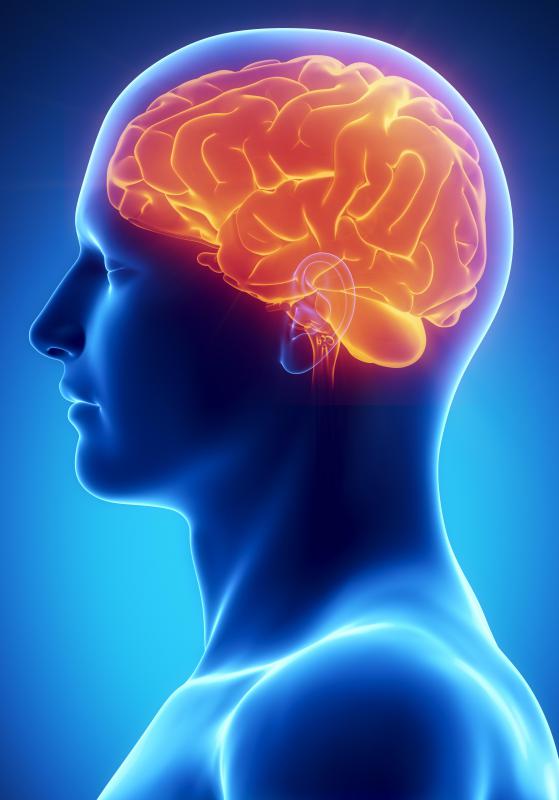At WiseGEEK, we're committed to delivering accurate, trustworthy information. Our expert-authored content is rigorously fact-checked and sourced from credible authorities. Discover how we uphold the highest standards in providing you with reliable knowledge.
What Are the Symptoms of Cerebral Vasculitis?
Cerebral vasculitis, also called central nervous system vasculitis, is an inflammation of the blood vessel wall in the brain or spinal cord. Symptoms of vasculitis that occurs in the brain include neurological problems such as difficulty in coordinating movement, headaches, and changes in how sensations are experienced. A patient with this type of vasculitis may also develop tumors in the brain that can cause a brain herniation and coma. Underlying medical conditions are common causes, but some instances of this type of vasculitis do not result from another condition. Treatments vary depending on the cause and can include immunosuppressant medications and glucocorticoids, which are types of steroids.
General symptoms of cerebral vasculitis are often neurological disturbances. Patients struggle with coordinating all of the body parts necessary for movement. Headaches occur as a result of pressure in the brain. Confusion, memory trouble, and seizures can also occur. Many of the general symptoms that occur can also occur with other conditions that affect the central nervous system. It is not uncommon for medical professionals to suspect another condition is the cause until proper tests are performed.

Due to the wide range of cerebral vasculitis symptoms that can occur and the potential dangers that are possible, quick and proper diagnosis is important. Treatment for vasculitis of the brain can be dangerous to a patient who does not actually have this type of vasculitis. Tests can provide a diagnosis. Patients may undergo an angiogram and biopsy procedure. Spinal taps allow spinal fluid to be tested, and magnetic resonance images can provide imaging of the blood vessels.

If cerebral vasculitis occurs as a result of another condition, the vasculitis is termed as secondary. Treatment must deal with both conditions. The underlying condition must be treated to prevent recurring instances of vasculitis. Once the primary condition is under control, steroids and immune system suppressants can be given to treat the vasculitis. When no underlying conditions are the cause, treatment often starts with steroids and then immune system suppressants if blood vessel inflammation does not respond to steroids alone.

Quick diagnosis and treatment of cerebral vasculitis is vital. If left untreated, symptoms progress and worsen. Pressure in the brain continues to build. This further reduces blood flow and oxygen that is necessary for proper functioning. Additionally, pressure and inflammation that continues or progresses can lead to degeneration of the affected blood vessels and potential damage brain tissue. Tissue death can also occur as a result of a decrease in oxygenation.
AS FEATURED ON:
AS FEATURED ON:














Discuss this Article
Post your comments